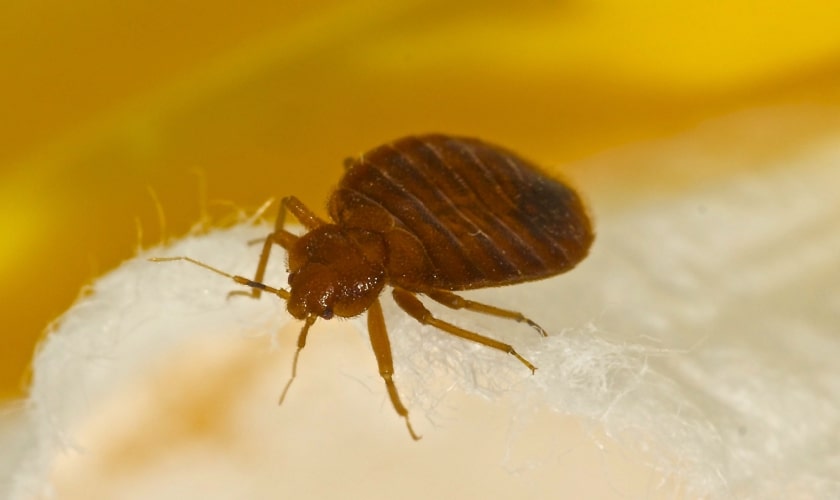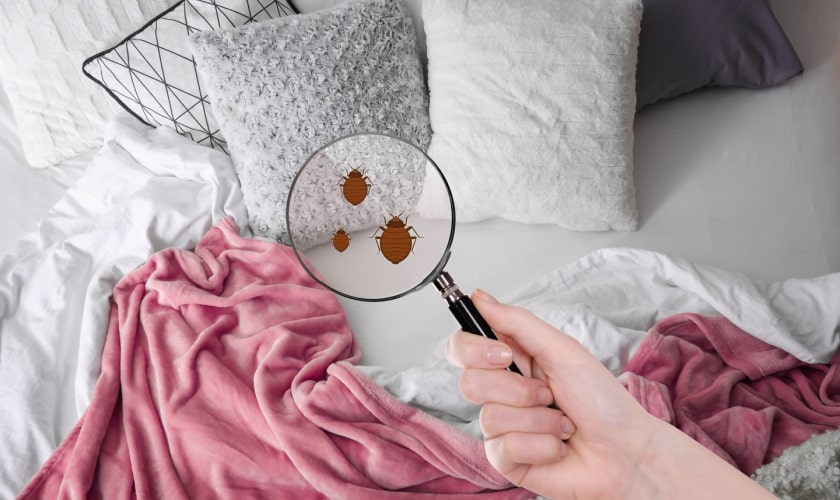A Breakdown of the Various Kinds Of Bug Control Solutions
In the world of bug control, a plethora of techniques exist to battle the existence and deal with of undesirable animals. From the traditional usage of chemical pesticides to more cutting-edge biological control options, each technique supplies unique advantages and limitations. As we browse with the diverse landscape of parasite control options, understanding the ins and outs of each method ends up being paramount in identifying the most efficient training course of action. Remain tuned as we explore the nuanced globe of bug control approaches and discover exactly how each type plays a special role in securing our settings.
Chemical Pesticides
Chemical pesticides are typically utilized in insect control to successfully get rid of a large array of pests and various other bugs. These pesticides work by targeting the nerve system of the insects, disrupting their normal functions, and ultimately resulting in their demise. Using chemical pesticides has actually been a staple in the parasite control sector for years as a result of their performance and fast results.

Nonetheless, it is important to use chemical pesticides with caution as a result of their potential dangerous effects on the atmosphere and non-target types. Inappropriate application or overuse of these pesticides can cause air pollution, harm to useful pests, and resistance development in insect populations. It is vital to adhere to safety guidelines and policies when utilizing chemical pesticides for insect control.
Biological Control Techniques
Considering the possible ecological influences and dangers connected with chemical pesticides, biological control methods offer an even more lasting method to managing pest populaces. Biological control involves using all-natural opponents, such as bloodsuckers, predators, and virus, to suppress parasite populations. This method is frequently more targeted, influencing just the specific pest species while minimizing injury to helpful insects, human beings, and the atmosphere.

One advantage of biological control is its long-term effectiveness. Once established, natural enemies can help control pest populations constantly without the requirement for repeated applications of pesticides. Furthermore, biological control is typically a lot more economical and can assist minimize chemical resistance in bug populations in time. In general, biological control methods offer a eco pleasant and sustainable service to pest management.

Mechanical Insect Control
Mechanical pest control entails the physical manipulation or elimination of pests to manage their populaces efficiently. This method is usually utilized in combination with other parasite control techniques for comprehensive bug management. One usual instance of mechanical bug control is making use of catches to capture bugs or rats. These traps can be established up in strategic places where pests are understood to dwell, aiding to reduce their numbers.
An additional mechanical technique is using obstacles such as screens, fencings, or nets to block bugs from getting in specific areas. By physically stopping bugs from accessing an area, the likelihood of invasions or damages can be considerably minimized. In addition, manual approaches like handpicking parasites off structures or plants can be effective for smaller-scale invasions.
While mechanical bug control approaches can be labor-intensive, they offer a non-chemical option that can be eco-friendly and lasting. By targeting insects directly, mechanical control methods can assist maintain parasite populaces in check without counting on chemicals.
All-natural Treatments
Using natural solutions for bug control uses a environmentally friendly and sustainable method to managing insect populations without resorting to chemical treatments. All-natural treatments involve making use of compounds stemmed from plants, minerals, or other normally happening sources to deter or remove bugs. For example, growing certain natural herbs like basil, mint, or lavender around your property can fend off bugs due to their strong scents. Diatomaceous planet, a powder made from fossilized algae, can be utilized to combat bugs like ants, cockroaches, and bed pests by dehydrating their exoskeletons.
Furthermore, vital oils such as tea tree oil or neem oil have insecticidal properties that can successfully manage bugs while being risk-free for the atmosphere. One more all-natural remedy is presenting beneficial insects like ladybugs or praying mantises to your garden to victimize unsafe insects. By incorporating these natural services into bug monitoring strategies, individuals can reduce their reliance on synthetic chemicals and promote a healthier, much more balanced environment.
Integrated Bug Administration
Integrated Bug Monitoring (IPM) is a comprehensive approach that combines various strategies to effectively control pest populations while minimizing threats to human wellness and the setting. IPM entails the combination of several insect control techniques such as biological control, environment adjustment, alteration of cultural practices, and making use of immune plant Kings best pest control cincinnati ranges. By utilizing a combination of these strategies, IPM intends to minimize reliance on chemical pesticides, which can have negative impacts on ecosystems and human wellness.
One secret element of IPM is the emphasis on avoidance. By carrying out steps to avoid pest infestations prior to they happen, such as maintaining correct hygiene and sealing entry factors, the requirement for reactive pest control actions is lessened. Monitoring and regular assessments play a vital role in IPM, permitting very early detection of pest concerns and timely treatment.
Final Thought
In final thought, the various kinds of pest control remedies provide a variety of alternatives for successfully managing bug infestations. Chemical chemicals offer fast elimination however might have environmental risks. Organic control methods make use of all-natural killers to manage parasites. Mechanical bug control entails physical barriers or catches. Natural solutions supply non-toxic choices. Integrated Insect Monitoring combines several approaches for a holistic technique to pest control. Each approach has its own benefits and downsides, and choosing the most proper remedy depends on the particular parasite trouble at hand.
Chemical chemicals are generally used in pest control to efficiently eliminate a broad range of insects and other insects.Mechanical insect control entails the physical adjustment or removal of pests to handle their populaces effectively (Kings exterminator cincinnati).Using natural treatments for parasite control offers a green and sustainable approach to managing pest populaces without resorting to chemical treatments.Integrated Insect Administration (IPM) is an extensive approach that incorporates numerous methods to successfully manage pest populaces while reducing risks to human wellness and the setting.In final thought, the various kinds of parasite control options use a variety of options for properly handling pest problems